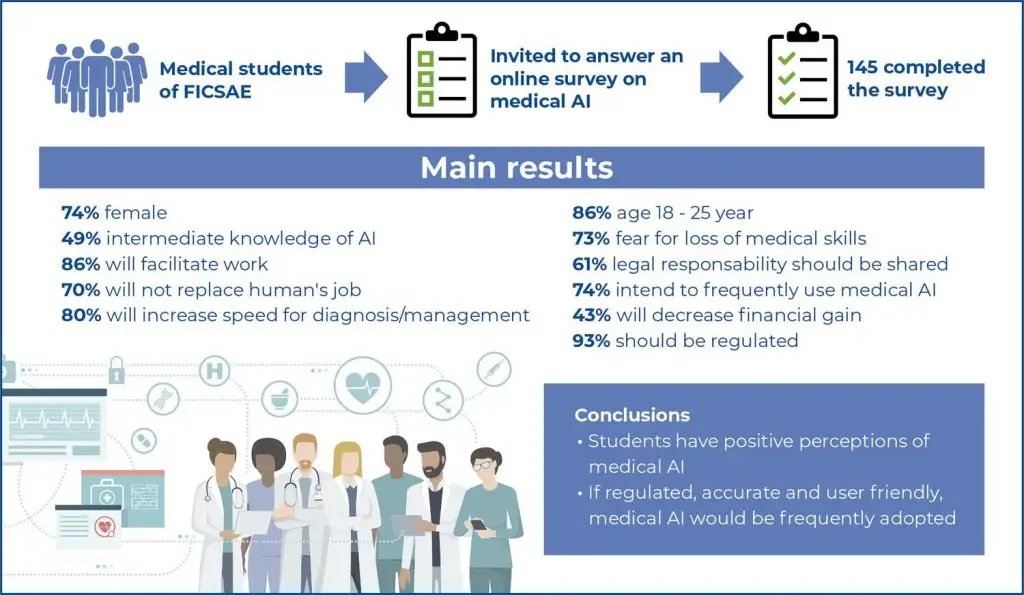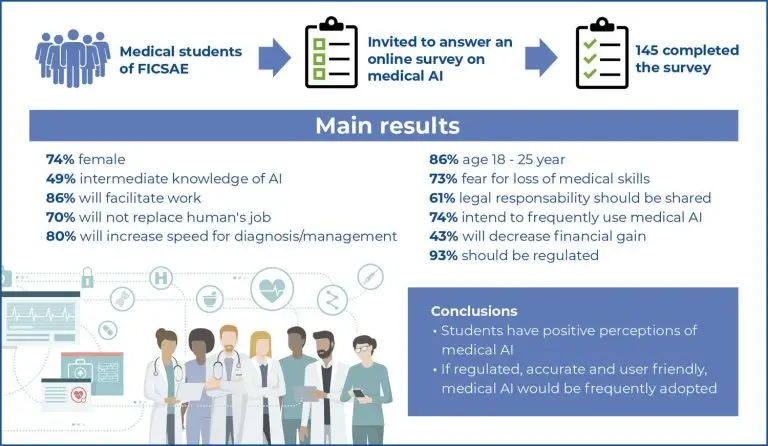einstein (São Paulo). 22/set/2025;23:eAO1401.
Attitudes, knowledge, opinions, and expectations of medical students towards medical artificial intelligence solutions: a cross-sectional survey study
DOI: 10.31744/einstein_journal/2025AO1401
Highlights
■Most students have a positive attitude towards medical artificial intelligence.
■ Artificial intelligence solutions would be frequently adopted if accurate, fast, and user-friendly.
■ Expectations include work facilitation and increased diagnosis and management speed.
■Most fear losing medical skills to artificial intelligence and desire governmental regulations.
ABSTRACT
Objective:
To assess medical students’ attitudes, knowledge, opinions, and expectations regarding medical artificial intelligence solutions, according to their sex and year of study.
Methods:
This cross-sectional survey was a single-center study conducted at a medical school in São Paulo, Brazil, using an online questionnaire.
Results:
Of 145 medical students who completed the survey (female, n=108/145, 74%; age, 18-25 years, n=129/145, 89%), 71 (49%) classified their artificial intelligence knowledge as intermediate, 137 (95%) wished that artificial intelligence would be regulated by the government. If artificial intelligence solutions were reliable, fast, and available, 74% (107/145) intended to use artificial intelligence frequently, but fewer participants approved artificial intelligence when used by other health professionals (68/145, 47%) or directly by patients (26/144, 18%). The main benefit of artificial intelligence is in accelerating diagnosis and disease management (116/145, 80%) and problem is overreliance on artificial intelligence and loss of medical skills (106/145, 73%). Students believed that artificial intelligence would facilitate physicians’ work (125/145, 86%); increase the number of appointments (76/145, 53%); decrease their financial gain (63/145, 43%); and not replace their jobs but be an additional source of information (102/145, 70%). According to 88/145 (61%) participants, legal responsibility should be shared between the artificial intelligence manufacturer and physicians/hospitals.
Conclusion:
Medical students showed positive perceptions of and attitudes towards artificial intelligence in healthcare. They presented interest in artificial intelligence and believed in its incorporation in daily clinical practice, if regulated, is user-friendly and accurate. However, concerns regarding this technology must be addressed.
[…]
117



